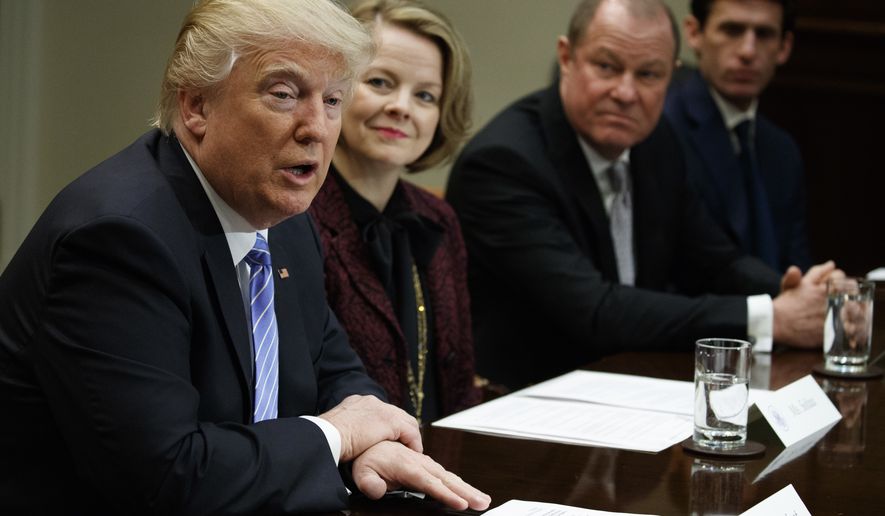Trump tells retail executives tax cuts are coming soon
Feb 16, 2017

Brushing aside questions about his advisers’ connections to Russia, President Trump told retail executives Wednesday that he’s concentrating on cutting taxes and regulations to create more jobs for the middle class and stronger business growth.
“My administration remains very focused on the issues that will encourage economic growth,” Mr. Trump said in a White House meeting. “That’s what we’re all about.”
Reporters brought in for the start of the president’s “listening session” asked Mr. Trump about reports that some of his campaign aides had been in contact with Russian officials prior to the election last year. The president didn’t answer.
“Thank you,” Mr. Trump said as staffers escorted the media out of the room.
On Monday, the president forced the resignation of his national security adviser, Michael Flynn, following reports that Mr. Flynn lied to Vice President Mike Pence and others in the administration about his conversations with a Russian diplomat regarding U.S. sanctions against Moscow.
Mr. Pence was also in the meeting with the retailers. Mr. Trump told the heads of companies such as The Gap, Target, Best Buy and JC Penney that his “massive tax plan” will be submitted “in the not-too-distant future.”
“We’re going to provide tax relief for families, we’re going to simplify very greatly the tax code, it’s too complicated,” he said. “We’re going to bring down the number of alternatives. It’s going to be a much much simpler tax code.
“We’re going to lower the rates very very substantially for virtually everybody in every category, including personal and business,” Trump said. “We want jobs brought back to the country. We want you to expand your stores.”
Mr. Trump may have offered a hint at the contours of his tax plan when he commented, “We’re going to bring down the number of alternatives, and I think it’s going to be a much, much simpler tax code.”
He didn’t elaborate, but during the campaign Mr. Trump said he wanted to scrap the alternative minimum tax, which hits about 4 million taxpayers annually, mostly in the middle class.
Source: The Washington Times